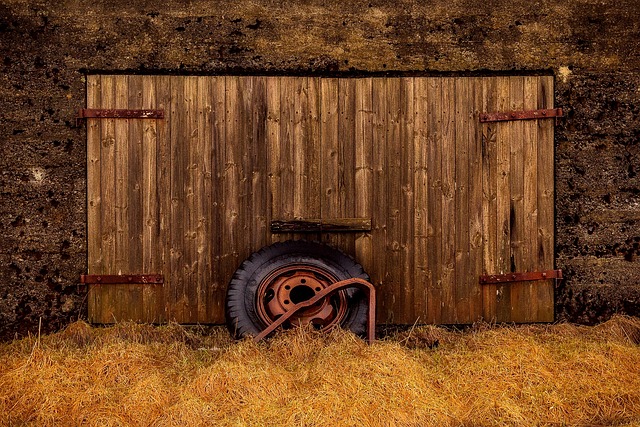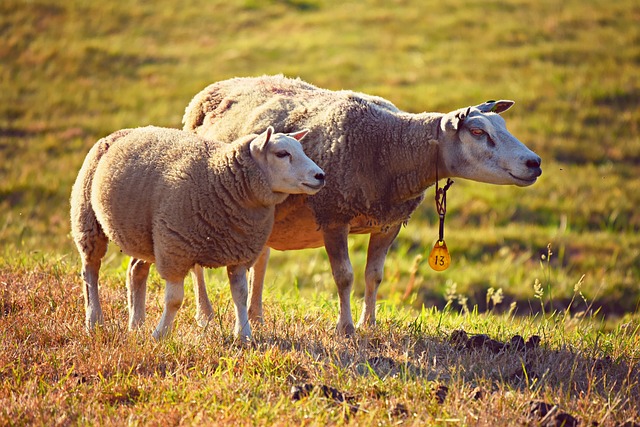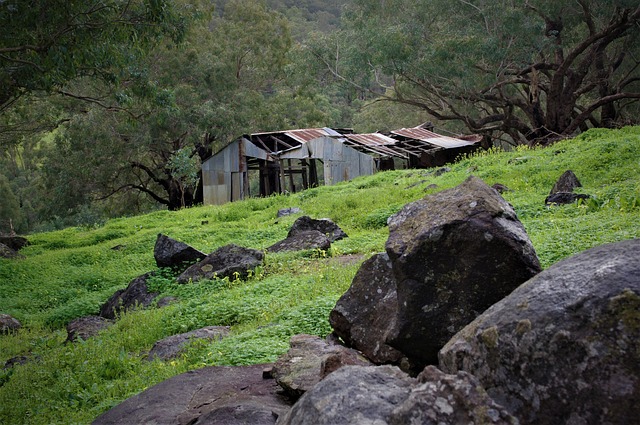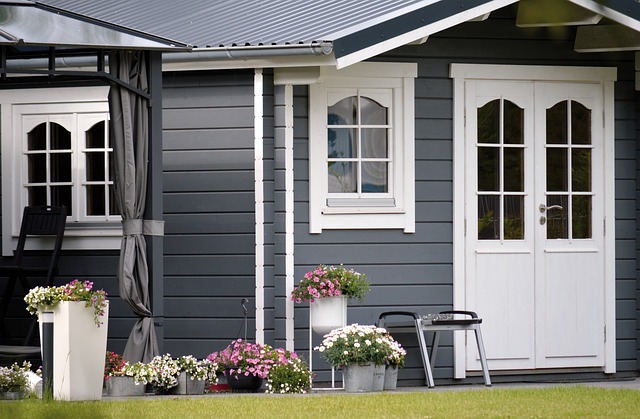Farm sheds in the Wagga Region are essential multifunctional structures that play a pivotal role in rural infrastructure by supporting a wide array of agricultural activities. These sheds are constructed with durable materials like galvanized steel and reinforced concrete to withstand challenging environmental conditions, and they can be customized with features such as mezzanine floors and climate control systems to suit different needs. The design of these sheds has evolved to incorporate modern farming practices, focusing on practicality, scalability, and energy efficiency, enhancing natural light and ventilation for cost savings and better working conditions. Their adaptability allows for easy reconfiguration, enabling them to serve various purposes over time, including as machinery storage, workshops, or even spaces for community events. Farm sheds are indispensable assets that offer robust yet flexible solutions to the dynamic agricultural sector in Wagga, ensuring their relevance amidst changing practices and environmental conditions. They have been enhanced with sustainable technologies such as solar panels and smart farming systems, embodying innovation in agriculture and contributing to a reduced carbon footprint. Farmers across the region are leveraging these advancements to maintain high productivity, adapt to market demands, and practice sustainable farming. The versatility of farm sheds has revolutionized agricultural activities, allowing for efficient operations, improved animal welfare, and the expansion of crop cultivation possibilities, thus becoming an integral part of modern agriculture in Wagga.
In the expansive and diverse agricultural landscape of the Wagga region, farm shed designs have evolved to meet the dynamic needs of modern farming. This article delves into the multifaceted role of farm sheds, highlighting their functionality, design versatility, and the impact of durable materials in withstanding the region’s climate. Explore how these structures are customized to boost agricultural efficiency, integrate innovative technologies, and witness, through case studies, how they have revolutionized operations for local farmers. Discover the essential aspects of farm sheds as vital components of Wagga’s thriving rural sector.
- Exploring the Functionality and Design of Versatile Farm Sheds in Wagga Region
- The Role of Durability and Material Choices in Farm Shed Construction in Wagga
- Customizable Features for Agricultural Efficiency: Farm Sheds in Wagga Adapt to Local Needs
- Innovative Technologies Integrated into Modern Farm Sheds around Wagga
- Case Studies: How Versatile Farm Sheds Have Transformed Operations for Wagga Farmers
Exploring the Functionality and Design of Versatile Farm Sheds in Wagga Region

In the Wagga Region, farm sheds serve as more than mere storage facilities; they are integral components of rural infrastructure that offer versatile functions to support a wide array of agricultural activities. The design of these farm sheds is tailored to meet specific needs, ranging from sheltering livestock and machinery to providing secure storage for hay and grain. These structures are often constructed with durability in mind, utilizing materials like galvanized steel and reinforced concrete to withstand the harsh conditions prevalent in the region’s rural settings. The adaptability of farm sheds is evident in their ability to be customized with features such as mezzanine floors for additional storage space or outfitted with climate control systems to protect sensitive equipment.
The functionality and design of farm sheds in the Wagga Region have evolved to cater to both traditional and contemporary farming practices. The sheds are designed with practicality at their core, ensuring they can be easily integrated into existing operations while offering scalable solutions to grow with the farming business. Innovative designs incorporate energy-efficient elements, maximizing natural light and ventilation, which not only reduce operational costs but also create a more pleasant working environment. Furthermore, the layout of these sheds can be adapted over time to suit changing needs, such as expanding to accommodate new equipment or repurposing for use as workshops or even events spaces. This adaptability makes farm sheds in the Wagga Region indispensable assets for modern agriculture, offering a blend of robustness and versatility that stands the test of time and varying agricultural demands.
The Role of Durability and Material Choices in Farm Shed Construction in Wagga

In the expansive agricultural landscape of the Wagga region, farm sheds are more than mere storage structures; they are integral components of rural operations, providing shelter and security for a variety of farming equipment, livestock, and crops. The role of durability in these structures cannot be overstated, as the harsh climate and demanding daily use demand materials that withstand both environmental pressures and the test of time. Steel farm sheds have emerged as a preferred choice due to their robust nature and longevity. The selection of steel not only ensures structural integrity but also offers flexibility in design, allowing for customization to suit specific agricultural needs. Moreover, the maintenance requirements for steel are minimal, translating to cost-effectiveness over time.
Material choices in farm shed construction in Wagga are pivotal, considering factors such as local weather patterns, which include high winds, heavy rains, and potentially scorching temperatures. These conditions necessitate materials that offer both strength and resilience. Corrugated steel, often coated with protective layers like Zincalume or Colorbond, is a common material due to its ability to resist rust and corrosion, maintaining the integrity of the shed for decades. Additionally, the use of high-quality metal roofing and cladding materials enhances the shed’s longevity and performance, ensuring that the farm’s assets are safeguarded against the elements. The choice of material not only impacts the shed’s lifespan but also its energy efficiency and environmental footprint, making it a critical decision in the sustainable management of rural properties in Wagga.
Customizable Features for Agricultural Efficiency: Farm Sheds in Wagga Adapt to Local Needs

In the Wagga region, farm sheds are more than mere storage structures; they are pivotal to agricultural efficiency and adaptability. These versatile buildings are designed with customizable features that cater specifically to the local farming needs, ensuring that each shed is an extension of the unique operations it houses. From adjustable wall panels for optimal natural light or shading to weatherproof materials resistant to the region’s unpredictable climate, these sheds are engineered for functionality and longevity. The integration of advanced ventilation systems helps maintain a suitable environment for sensitive agricultural equipment or livestock. Moreover, the modular design allows for future expansion or reconfiguration based on evolving farming practices or crop requirements. This adaptability not only enhances operational efficiency but also supports the long-term sustainability of agricultural endeavors in the Wagga region.
The customization options for farm sheds in Wagga are extensive, encompassing a range of configurations to suit diverse agricultural activities. These structures can be equipped with robust shelving and workbenches, ample space for machinery, and even sections outfitted with specialized technology for precision farming. The inclusion of energy-efficient lighting and insulation ensures that these sheds are not only practical but also cost-effective to operate. Additionally, the design often incorporates easy-to-clean surfaces, facilitating a hygienic environment for handling produce or raising animals. The commitment to tailoring farm sheds to local needs reflects a deep understanding of the region’s agricultural priorities, making them an indispensable asset for farmers in Wagga.
Innovative Technologies Integrated into Modern Farm Sheds around Wagga

In the Wagga region, farm sheds have evolved beyond their traditional roles as simple storage units. Modern farm shed designs are now integrating cutting-edge technologies to enhance functionality, efficiency, and sustainability. These advancements range from solar panel installations to optimize energy usage, to automated climate control systems that ensure optimal conditions for sensitive agricultural equipment or perishable goods. Additionally, the use of smart farming technologies, such as IoT devices and sensors, allows for real-time monitoring and data collection, which can be crucial for informed decision-making and precision agriculture practices. The region’s farms are adopting these innovations to stay competitive, with a focus on reducing environmental impact while maintaining high productivity levels. Farmers in Wagga are recognizing the benefits of these tech-savvy farm sheds, as they not only provide ample space for equipment and livestock but also serve as hubs for modern agricultural practices that are shaping the future of farming in the region.
Furthermore, the integration of insulation materials and efficient lighting solutions is improving the energy profile of these sheds. The inclusion of LED lighting not only extends operational life but also reduces energy consumption, contributing to a lower carbon footprint. Moreover, the use of durable, low-maintenance materials in the construction of these farm sheds ensures longevity and minimizes the need for frequent repairs or replacements. This combination of sustainability, resilience, and technological integration positions Wagga’s farm sheds at the forefront of agricultural innovation, making them a model for other regions to emulate. The local agricultural community is leveraging these advanced farm structures to adapt to changing market demands and environmental challenges, ensuring they remain key players in the industry.
Case Studies: How Versatile Farm Sheds Have Transformed Operations for Wagga Farmers

In recent years, the integration of versatile farm sheds in the Wagga region has significantly transformed agricultural operations for local farmers. A case study highlighting a dairy farmer’s experience demonstrates this transition. With the introduction of a spacious, multipurpose shed designed to accommodate milking and housing dairy cattle, this farmer witnessed a marked improvement in efficiency and animal welfare. The adaptable design allowed for easy reconfiguration to serve different functions as the farm’s needs evolved, from storing machinery to providing shelter during adverse weather. Similarly, a nearby cattle ranch utilized versatile farm sheds to streamline their feeding and sorting processes. These structures not only withstood the harsh environmental conditions prevalent in the region but also facilitated better stock management and space optimization, leading to an increase in productivity and profitability. The durability and flexibility of these farm sheds have proven invaluable, offering a cost-effective solution for adapting to the dynamic demands of modern farming practices in the Wagga area.
Another notable example is a produce farmer who diversified their operations by using versatile farm sheds as controlled environment greenhouses. This innovative approach has enabled year-round cultivation of high-value crops, expanding the farm’s market reach and revenue streams. The versatility of these structures allows for adjustments to meet specific crop requirements, ensuring optimal growing conditions and yield. These cases underscore the transformative impact of versatile farm sheds on operations across the Wagga region, showcasing their role as a cornerstone of modern agricultural development. Farmers in the area continue to leverage these structures to enhance their productivity, adapt to changing market demands, and maintain sustainable farming practices.
In conclusion, the versatility of farm sheds in the Wagga region stands as a testament to the ingenuity and adaptability required for modern agriculture. The design, durability, and customizable features of these structures not only cater to the diverse needs of local farmers but also integrate innovative technologies that enhance operational efficiency. From the robust materials chosen to withstand the regional climate, to the bespoke configurations that address specific agricultural tasks, farm sheds in Wagga have proven their worth through real-world case studies, demonstrating transformative impacts on farming practices. As a result, these multipurpose structures remain an essential element in maintaining the vitality of the region’s agricultural sector. Farmers across Wagga continue to reap the benefits of these sophisticated yet practical sheds, ensuring their farms thrive in the face of evolving challenges and opportunities.
